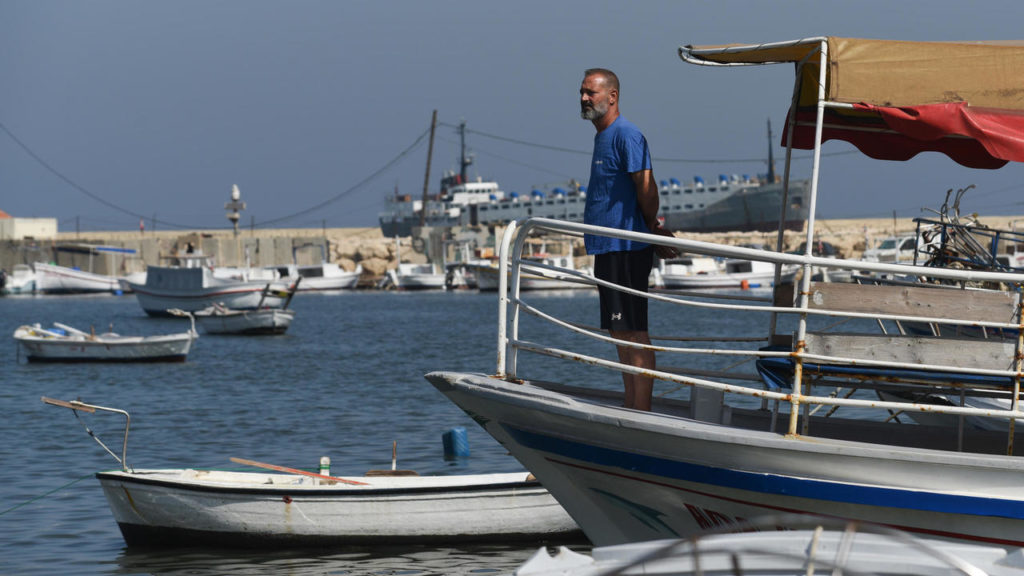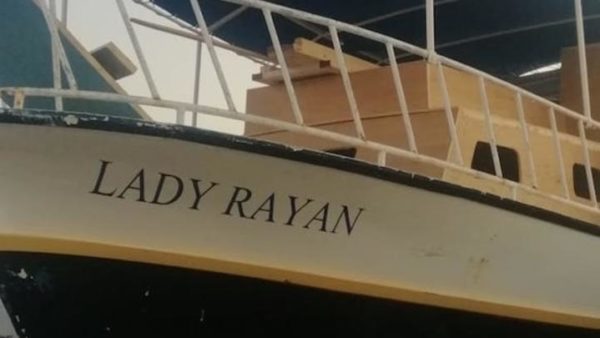
By:Mehdi CHEBIL
Hundreds of impoverished Lebanese people have recently tried to make the sea crossing from the northern port city of Tripoli to Cyprus in order to escape the country’s financial meltdown. FRANCE 24 met three of them in Tripoli after they were sent back by Cypriot authorities.
The “Lady Rayan” was ready to leave Lebanon for good. The unsophisticated 20-metre wooden boat had seen better days, back when it was used to ferry tourists from Tripoli‘s El Mina harbour to the nearby Palm Islands Nature Reserve.
The tourist boat was bought by a group of 33 impoverished Lebanese and Syrian exiles who dreamed of reaching Europe. They thoroughly prepared their journey, acquiring a compass and a GPS with the coordinates of the island of Cyprus, a European Union-member around 200 kilometres from Tripoli. Two small inflatable boats and several lifejackets were carried onboard in case something should happen to the venerable old boat. A dedicated area for the group’s children was prepared in the hold of the ship, and plenty of supplies stocked on board.
“We had enough food to go all the way to France,” joked Bassem Hdayfi, a 47-year-old fisherman from Tripoli who helped prepare the boat journey. “We decided to leave on September 4 at 17:00 because weather predictions were good, and we knew that Lebanese police would not be in the area at this time,” Hdayfi told FRANCE 24.

There was one last thing to do before sailing out: the “Lady Rayan” was to undergo a name change.ADVERTISING
“The Greek Cypriots are Christians, so we decided to remove the old name and write Lady Maria instead. We thought it would give us a better chance of being taken in as refugees,” explained Hdayfi.
The Christian name did not mollify the Greek Cypriot police who intercepted the migrant boat as it approached the island’s coast. “I felt overwhelmed with joy when we first saw the Cypriot shores (…) But when the police came on board, they beat me and I realised our plan would not work,” said Hdayfi.
The group of 33 was taken back to Lebanon on a Cypriot ship. Only “Lady Maria” got to stay in Cyprus.

Hdayfi is among hundreds of Lebanese and Syrians who have tried to make the illicit sea crossing from Tripoli to Cyprus in recent weeks. Most of them have been summarily “pushed back , expelled, or returned” by Cypriot coast guard forces “without giving them the opportunity to lodge asylum claims”, Human Rights Watch said in a statement.
These informal pushbacks were somehow officialised on October 6 when senior officials from both Cyprus and Lebanon announced that all migrants boats attempting to reach Cypriot shores would be returned.
“We’re sending out a clear message that we won’t tolerate anyone engaging in the trafficking of human beings and that we’re defending the interests of our two states,” said Greek Cypriot Interior Minister Nicos Nouris.

Greek Cypriot authorities consider boat people coming from Tripoli as “economic migrants” and not genuine asylum seekers.
In his interview with FRANCE 24, Hdayfi described his hometown as the poorest city of a totally bankrupt country.
Unemployment and poverty are skyrocketing across Lebanon, where the local currency has lost 80% of its value since October 2019. In a country that relies on imports in US dollars for almost everything, this unprecedented financial meltdown has wiped out the local population’s purchasing power.

Two other former passengers who attempted the same sea crossing also said they boarded the “Lady Maria” to flee their country’s economic storm.
“All prices are exploding, but my salary remains the same,” Fadi Karbajha, a 39-year-old construction site manager, told FRANCE 24. “Look at the cup of coffee on this table. Today we paid 1,000 Lebanese pounds for it. Imagine that tomorrow it becomes 2,000 and the day after tomorrow 2,500 for the same cup of coffee. It’s impossible to live with that kind of uncertainty.”
The father of three decided to buy a seat for him and his family on the “Lady Maria” after two failed attempts to get visas for France. “We had to sell my wife’s jewelry to pay the equivalent of $2,500. I did it for my children above all, I want them to have a better future,” added Karbajha.
Hadi Abdelfattah, another former passenger on the “Lady Maria”, joined in the conversation: “Well, me I did it for my parents. They are sick and I want to be able to afford the hospital and healthcare for them.”
The 25-year-old electrician explained how his salary was nearly cut in half by the economic crisis. Then came the currency collapse. In a matter of months, his monthly income went from the equivalent of $1,000 to $70. Abdelfattah had to sell his car to pay for his passage on the “Lady Maria”.

Despite losing a lot of money in their attempt to reach Cyprus, all three passengers FRANCE 24 talked to said they would still try to leave the country. They have long given up on their local politicians, whom they portrayed among the most venal in Lebanon.
“I want to leave but I won’t try again by boat, that was a mistake. I don’t want to put the life of my children in danger again,” said Karbajha. As for Hdayfi, the fisherman, he was adamant that he would set sail again for Europe soon.
“I’m not afraid of trying again. We are dying slowly here, I have nothing to lose.”
FRANCE24/ AFP


Leave a Reply
You must be logged in to post a comment.